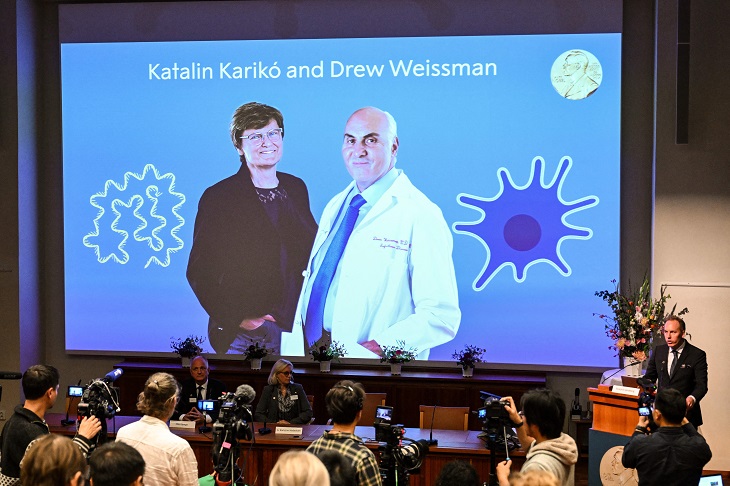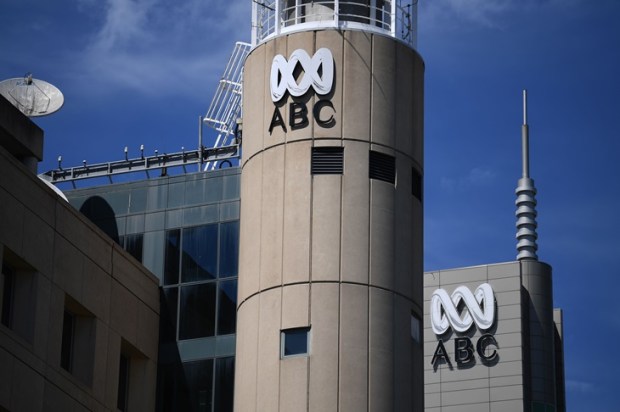As questions mount across the world regarding the long-term safety and efficacy of mRNA Covid vaccines, the Nobel Prize in Physiology or Medicine has been awarded to two scientists instrumental in their development.
Professor Katalin Karikó and Professor Drew Weissman have been jointly named as this year’s winners for:
‘…their discoveries concerning nucleoside base modifications that enabled the development of effective mRNA vaccines against COVID-19.’
They will receive $1 million (or AUD 1.56 million), a gold medal, and a diploma awarded by King Carl XVI Gustaf in Stockholm during early December.
‘I always wished that I would live long enough to see something that I’ve worked on be approved,’ said Karikó of her win. The pair were said to be ‘overwhelmed’ by receiving one of the highest honours in medicine.
The Nobel Assembly said that the pair had ‘fundamentally changed our understanding of how mRNA interacts with our immune system’ contributing to what they describe as an ‘unprecedented rate of vaccine development during one of the greatest threats to human health in modern times’.
There are many dissenting experts in the field who would disagree heartily with the Nobel Assembly’s assertions, particularly regarding the threat of Covid to world health when compared with other issues. It is a claim repeated (under criticism) by the World Health Organisation as an excuse to expand its regulatory and advisory powers across (and above) the sovereignty of nation-states. Human rights advocates similarly will find little comfort given that for many individuals, particularly in the West, mRNA vaccines were issued as a demand – not a choice.
mRNA vaccines are famous for instructing the body to manufacture the Covid virus’ spike protein.
Part of the reason for historic hesitancy surrounding mRNA vaccines was their tendency to create inflammatory reactions in the body that made them unsafe for use. This held up their development for many years prior to Covid.
The winners of the Nobel Prize artificially adjusted mRNA molecules to avoid the body setting up a dangerous inflammatory response making it possible for the technology to be used in Covid vaccines. Both Pfizer and Moderna made use of this technology. Essentially they ‘keep the mRNA under the immune system’s radar’.
As one vaccine immunologist said: ‘They demonstrated that changing the type of the RNA nucleotides within the vaccine altered the way in which cells see it. This increased the amount of vaccine protein made following the injection of the RNA, effectively increasing the efficiency of the vaccination – more response for less RNA. This was a vital building block of the success of the RNA vaccines in reducing disease and death during the pandemic.’
The speed at which mRNA vaccines can be manufactured is one of the key reasons Big Pharma has earmarked them as the way forward – already doing deals with governments across the world to develop them. In Australia, the agricultural industry has taken drastic steps to prioritise future mRNA use in livestock despite protests from many farmers who continue to question their safety.
It should be noted that the winners have not worked for any of the Covid vaccine manufacturers, although the Daily Mail reports:
‘Professor Karikó was, however, senior vice president and head of RNA protein replacement at BioNTech until 2022 and has since acted as an adviser to the company. BioNTech worked with Pfizer to create its Covid jab.’
Their work has been revolutionary in the field of medicine and the progress of mRNA vaccines. Whether the public wants to adopt that technology is another question entirely, especially given how Covid vaccines were launched upon the world under arguably the most coercive and medically abusive environment our governments have ever created.
While we congratulate the scientists on their breakthrough, it will take many years – if not decades – before the general public makes a decision on the future of mRNA technology.
Got something to add? Join the discussion and comment below.
Get 10 issues for just $10
Subscribe to The Spectator Australia today for the next 10 magazine issues, plus full online access, for just $10.


























Comments
Don't miss out
Join the conversation with other Spectator Australia readers. Subscribe to leave a comment.
SUBSCRIBEAlready a subscriber? Log in